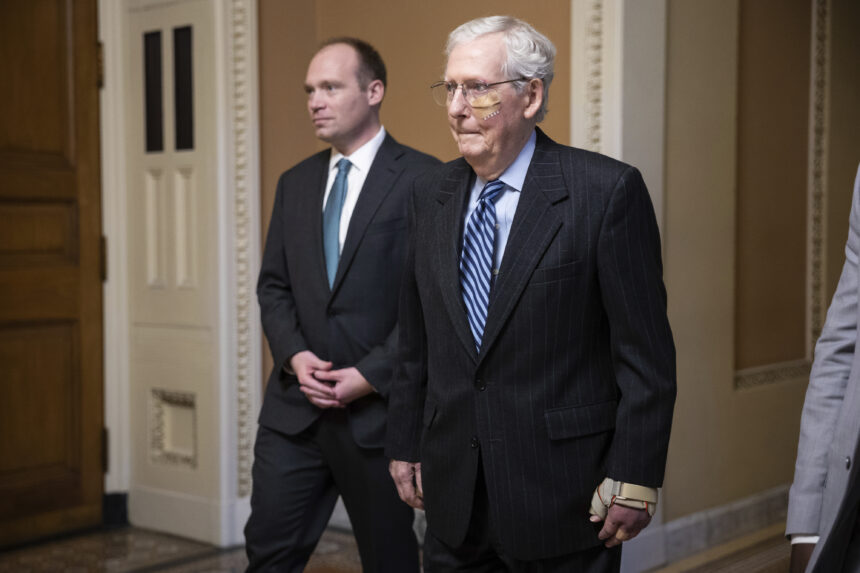President-elect Donald Trump’s allies are embroiled in a new battle with traditionalist Republicans, this time over the leadership of top Senate campaign groups. The hiring process at the National Republican Senatorial Committee (NRSC) and the Senate Leadership Fund super PAC has turned into a contentious issue, with MAGA Republicans questioning the loyalty of prospective leaders to Trump and his movement.
The latest target of their scrutiny is Brendan Jaspers, who was recently appointed as the NRSC’s political director for the 2026 midterms. MAGA activists and consultants have raised concerns about Jaspers’ previous role as director of campaigns at the anti-tax Club for Growth, which opposed Trump in the 2024 primary before reconciling with him. This has sparked a debate over whether Jaspers is the right fit for the position, with some accusing him of working against President Trump in the past.
The hiring disputes extend beyond Jaspers, with MAGA Republicans also taking issue with Senator Tim Scott’s decisions as the incoming NRSC chair. Scott’s attempts to bring on staff members who are not seen as sufficiently loyal to Trump have further fueled tensions within the party. The power vacuum left by Senator Mitch McConnell’s departure from GOP leadership has created an opportunity for Trump allies to assert their influence in the post-election power struggle.
Scott’s hiring choices, including bringing on a former adviser to Mike Pence who became a vocal Trump critic, have sparked backlash from Trump allies. The appointment of Stephen DeMaura as deputy executive director, despite rumors that he was in the running for the top position, has fueled speculation about loyalty within the party. The public criticism and internal disputes over staffing decisions have highlighted the deep divisions within the Republican Party.
The infighting over NRSC hiring has spilled into the public domain, with Trump’s campaign co-chair and other prominent figures expressing their displeasure with the committee’s decisions. The clash between traditionalist Republicans and MAGA loyalists underscores the ongoing battle to reshape the GOP in the image of the Trump wing. As the party seeks to consolidate its power and prepare for future elections, the internal conflicts threaten to distract from the larger goal of securing victories in Senate races.
The struggle for control of the Senate campaign apparatus reflects a broader ideological shift within the Republican Party. The departure of key leaders and the influx of new voices have created a power vacuum that both traditionalist Republicans and MAGA loyalists are vying to fill. The outcome of this internal battle will have far-reaching implications for the future direction of the party and its ability to attract and retain support from a diverse base of voters.








